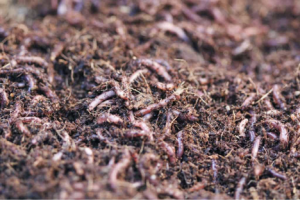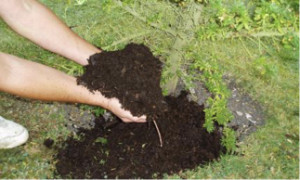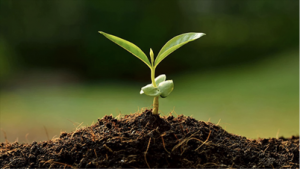We gardeners read lots of articles about this and that. Compost is certainly one of the most popular topics for blogs and garden magazines. Many times, though, the process seems complicated and beyond reach. Well… here’s an article by Melissa Weir that simplifies the process. I hope it inspires you to start your own compost pile!!
How to Compost – Importance, Resources and Its Uses

Compost is a new black material; it is comparative in appearance and surface to potting soil. Compost is typically delivered when organic material separates and decays (a procedure known as composting). It is otherwise called black gold.
We spoke to Redshed about how to compost, as well as the importance of compost, its resources and how compost can be used.
How to Make Compost
It is anything but complicated to figure out how to make compost. It is only a simple procedure.
Making compost is tied in with creating the perfect condition for creatures to flourish in the compost heap. Compost is, at last, a waste item that outcomes after several distinct living
Beings including well-disposed collections of microscopic organisms, parasites, creepy crawlies, and worms who all feast upon our waste. After these creatures separate organic issues, the rich disintegrating dark colored substance left finished is the compost and soil conditioner that you can use to grow plants in your garden.
You can also utilize carbon-rich materials (darker waste like leaves) and nitrogen-rich materials (like vegetable peelings.) Among the carbon-rich materials are roughage and wood chips. Nitrogen-rich materials are crisp or green, for example, grass clippings.
Leaves are an incredible item to include in your composter and should make up the aggregate level of your garden squander. One approach to influence leaves to debase quicker is to put them through a sprightly or shredder. You can likewise have a go at laying them out and shred them by running your garden cutter over them. These leaves will deteriorate quicker than ones that are greater.

Grass Clippings separate quickly and contain a lot of nitrogen. To keep them from beginning to smell in your composter, spread them out on a flat surface to allow them to dry out in the sun for a day or two.
You can include a wide range of kitchen refuse to your compost bin or compost store too. Sorts of kitchen squander that you can toss in includes melon skins, orange skins, carrot and turnip peelings, banana peels, apple cores and tea sacks. In any case, don’t endeavor to compost things like nutty spread or any meat matter as it will back off the procedure of rot and cause scents and perhaps an issue with rodents.
Destroyed organic materials warm up quickly, break down rapidly, and create satiny, brittle supplement rich compost. The disintegration rate increments with the measure of the composting materials. Bear in mind that you can always include new elements to your compost. But make sure to blend the compost or turn it over with a spade once every seven days to accomplish ideal outcomes!
Significance of Composting
1.) The subsequent compost is rich in supplements
These supplements are loved by plants, making compost a standout amongst other kinds of manure you can utilize. Compost can be worked into the soil before trees, bushes, or different plants are planted. It can likewise be connected to the soil around existing plants. Compost will enable plants to become greater, speedier, and more grounded than you at any point thought conceivable.
2.) Composting is an approach to reuse!
We as a whole realize that reusing is the best activity. The more things we can keep out of our landfills, the better. Furthermore, all things considered, why discard ideas that you can transform into significant compost? Basic items like vegetable peelings, dead leaves from your trees, and plant clippings would all be able to be converted into compost. It bodes well to reuse these mentioned items in compost as opposed to discarding them.

3.) Enriched soil
The composting procedure encourages the production of advantageous microorganisms inside the soil. It even diminishes bothers, diminishes the requirement for manures, and expands overall harvest yield.
4.) Cleans polluted soil
Composting ingests smells inside the soil and dispenses with other hurtful mixes.
5.) Prevents contamination
Composting materials help maintain a strategic distance from the production of methane and forestall disintegration in an assortment of territories.
6.) Provides financial advantages
By composting, you will no longer require as much water, pesticides, or manures on particular yields. Consequently, this could save you a small amount of cash.
Resources for Making Compost:
Begin by purchasing a compost container or by utilizing an old container that you find around the home. However, make sure it is one that is big enough to hold a reasonable piece of manure mix with a touch of room remaining.
Other than that, you will likewise need to get yourself a compost turner for blending this rotting waste instead of doing it with your hands. A compost turner is an extraordinarily outlined apparatus utilized for ensuring the air is efficiently circulated through your compost.
A compost fork is an extra piece to the composting supplies puzzle. One that is similar to a cultivator. However, when the two tools are used together, you are likely to get the best outcomes with your compost.
There’s also the compost thermometer. That gear will help you to keep track of the general temperature inside your compost and can guarantee that it proceeds at the temperature you wish.
Moisture meters are also useful composting supplies for composting and pretty much total the get-together of composting supplies you have to begin. You would work with a moisture meter in your compost to demonstrate to you how wet or dry your heap is.
Uses of Compost
1. Enhancing soil quality
On the off chance that you have poor soil in your general vicinity, compost is the perfect method to repair it. Despite whether your soil is overly sandy, contains excessive amounts of mud, is worryingly acidic or excessively soluble, with compost and time, your soil can go from terrible to exceptional.
2. Fertilizing existing plants
To prepare existing plants, bushes, and trees, just add some compost to the soil around the base of the plant. On the off chance that you are managing a profound established plant, you might have the capacity to fill it into the soil marginally. Be that as it may, much of the time, to abstain from harming any root structures, it’s best to merely sprinkle the compost gently around the base of the plant. In the end, with precipitation and watering, the supplements will stream down into the soil to the plant’s underlying foundations.
3. Starting seeds
Youthful seedlings require a ton of supplements to get off to a good start. Commonly, seeds are in a peat greenery blend. However, compost will also work efficiently. Do great
4. Developing new sod
A significant number of us have zones in our yards that could utilize reviving. Maybe the garden has not been harmed somehow, and it’s an excellent opportunity to begin some new grass from seed. Compost can help significantly in this procedure.
5. Enriching planting holes
On the off chance that you are getting ready to plant some new trees, bushes, or different plants. Compost is an extraordinary method to enrich the planting opening before putting the new plant in.
Author Bio:
Melissa Weir is a North Carolina-based freelance writer and work-from-home mother of two. In her 10 years as a professional writer, she’s worked in proposal management, grant writing, and content creation. Personally, she’s passionate about teaching her family how to stay safe, secure and action-ready in the event of a disaster or emergency.
